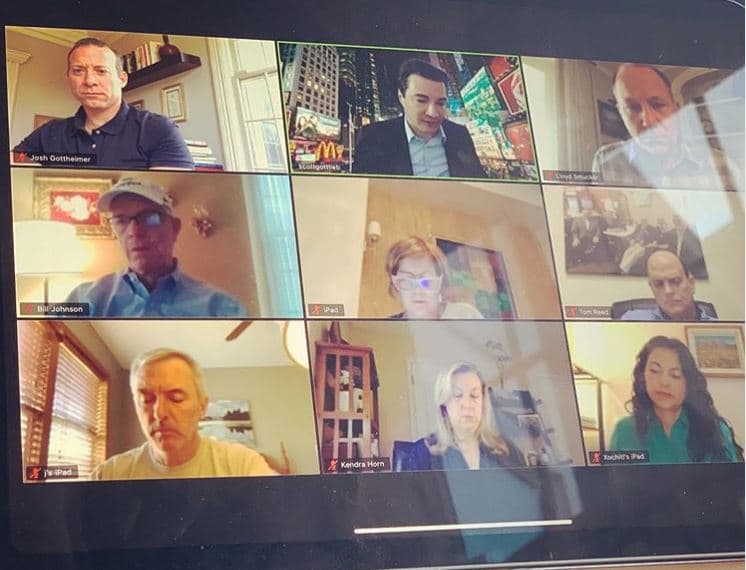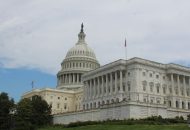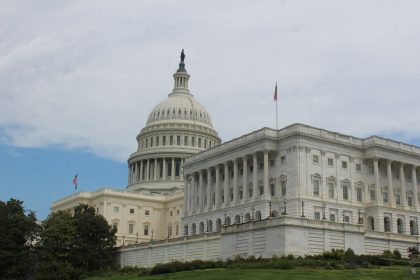Problem Solvers Suggest Measures to Keep Government Working In a Crisis

WASHINGTON – The bipartisan Problem Solvers Caucus is urging the House leadership to seize opportunity from a grave national crisis and adopt new policies ensuring members can carry out their obligations to debate and vote on legislation even if they can’t meet in person.
In a letter sent to House Speaker Nancy Pelosi and Minority Leader Kevin McCarthy last week, Reps. Josh Gottheimer, D-N.J., and Tom Reed, R-N.Y., co-chairs of the caucus, say that it is essential in a time of national emergency that all members have the ability “to represent the will of their constituents, shape legislation … and participate in the future direction of our country.”
“With our shared perspective, we urge the U.S. Congress put parameters in place to allow us, as Representatives, to remain accountable to our constituents during this health and economic crisis,” Gottheimer and Reed write.
“We must adopt protocols that ensure the record is clear and our functioning democracy is protected,” they continued.
In an interview with The Well News from his district in Northern New Jersey, Gottheimer expressed frustration that with a pandemic raging, Congress is confined to relying on unanimous consent by voice vote to get anything done.
“What that means is, if you lose just one person, the proposal is stopped dead,” he said.
“Not only is that a nightmare when it comes to providing the nation with a much-needed economic stimulus, but it means we can’t address other matters in the meantime,” Gottheimer continued. “The point of our letter is to suggest we rethink the idea of what a meeting is, and that we make sure we have remote participation in debate and some form of distance voting.”
Gottheimer noted that unlike the situation faced by lawmakers during the flu pandemic of 1918, “modern technology offers us a host of options to govern from afar, safely and securely.”
“Governments around the world, including England and Japan, have deployed these options, and are voting from home. Similarly, we believe Congress must be responsive to the changing operational requirements created by the pandemic crisis,” he said.
“Aside from private party caucus meetings and national security-related conversations, most of what we do is transparent and public,” Gottheimer said. “For instance, CSPAN airs our committee hearings, floor activity, and voting. We can also develop many redundant systems to help prevent threats of external forces from undermining our activity, as we do in government every day.”
In their letter Gottheimer and Reed lay out a number of recommendations to be considered and emphasize they are not dictating an outcome, but merely getting a needed conversation started.
Voting
On voting, they say that because votes in Congress are public, a variety of methods of varying technological sophistication could easily be used to carry them out.
For instance, the House could adopt a method of voting by phone that would allow members to call the clerk and record their vote. The member would then receive an email confirmation to their Congressional email account documenting their vote, or the pending votes could be available on CSPAN or on a website until the vote closes.
“In this scenario, votes would be held open for longer to accommodate the individual calls and vote verification,” Gottheimer said, adding there are straightforward options for confirming a member’s identity during the vote.
Another alternative the caucus suggests is video conferencing votes. Still another option might be using voting machines like those on the floor of the House in district offices or the members’ homes.
“This plan would require substantial set up and planning, which would delay the utility of this potential solution during the COVID-19 crisis,” the caucus chairs wrote.
Floor Debate
The Problem Solvers suggest that members wishing to participate in a debate on a specific bill would do so by submitting comments in writing for the record and/or submitting a video to be displayed through C-SPAN.
In addition, video conferencing could be deployed to allow for remote floor debate from member district offices, on the House network, or directly from a member’s home.
“We could also utilize nearby military bases, FBI offices, and U.S. Attorney offices for secure video,” the caucus says.
Committee Debate and Mark-Ups
Again, the Problem Solvers see video conferencing technology as likely the best approach to take.
Though they concede a committee debate could be disrupted by a denial of service attack, they note “public hearings are subject to disruption by in-person protestors.”
“With video conferencing, we could and should have redundant systems in place, to prepare for this threat,” the letter suggests.
In addition, the caucus says, committees should prioritize oversight, legislative debate and fact-finding related to the crisis at-hand, and should refrain from unrelated matters unless absolutely necessary to the continuation of government operations.
“If there’s one thing I want to make clear it’s these are all things we believe the House leadership can act on right now,” Gottheimer said. “We believe many if not all of these procedures are actually allowed under the current rules, and if the sticking point is the definition of ‘in-person’ in the rules, I would argue modern technology has greatly expanded what those words mean.
“Most importantly, as Congress continues to consider the possibility of a fourth stimulus bill, we believe there’s no reason our leaders couldn’t get together and work something out to allow these things to happen straight away,” he said.
























